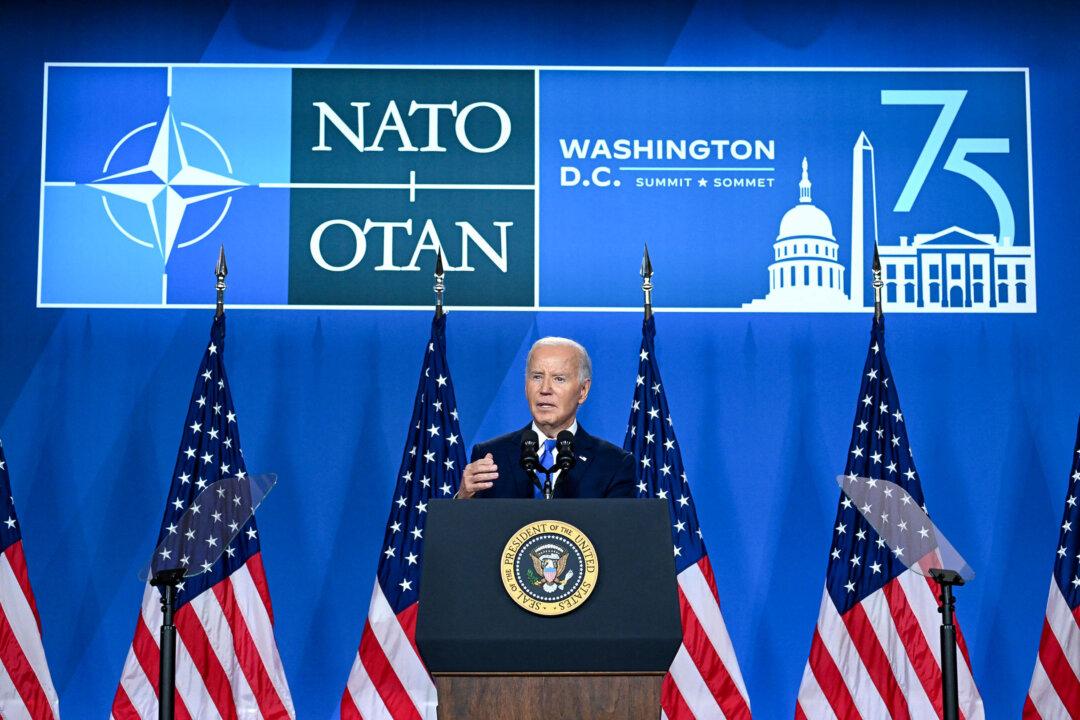U.S. President Joe Biden warned the Chinese communist regime on July 11 that supporting Russia in its war with Ukraine wouldn’t result in economic benefits and might lead to penalties such as raised tariffs and a loss of foreign investment.
“We have to make sure that Xi understands there’s a price to pay,” President Biden said at a press conference at the NATO summit in Washington, referring to Chinese Communist Party (CCP) leader Xi Jinping.





